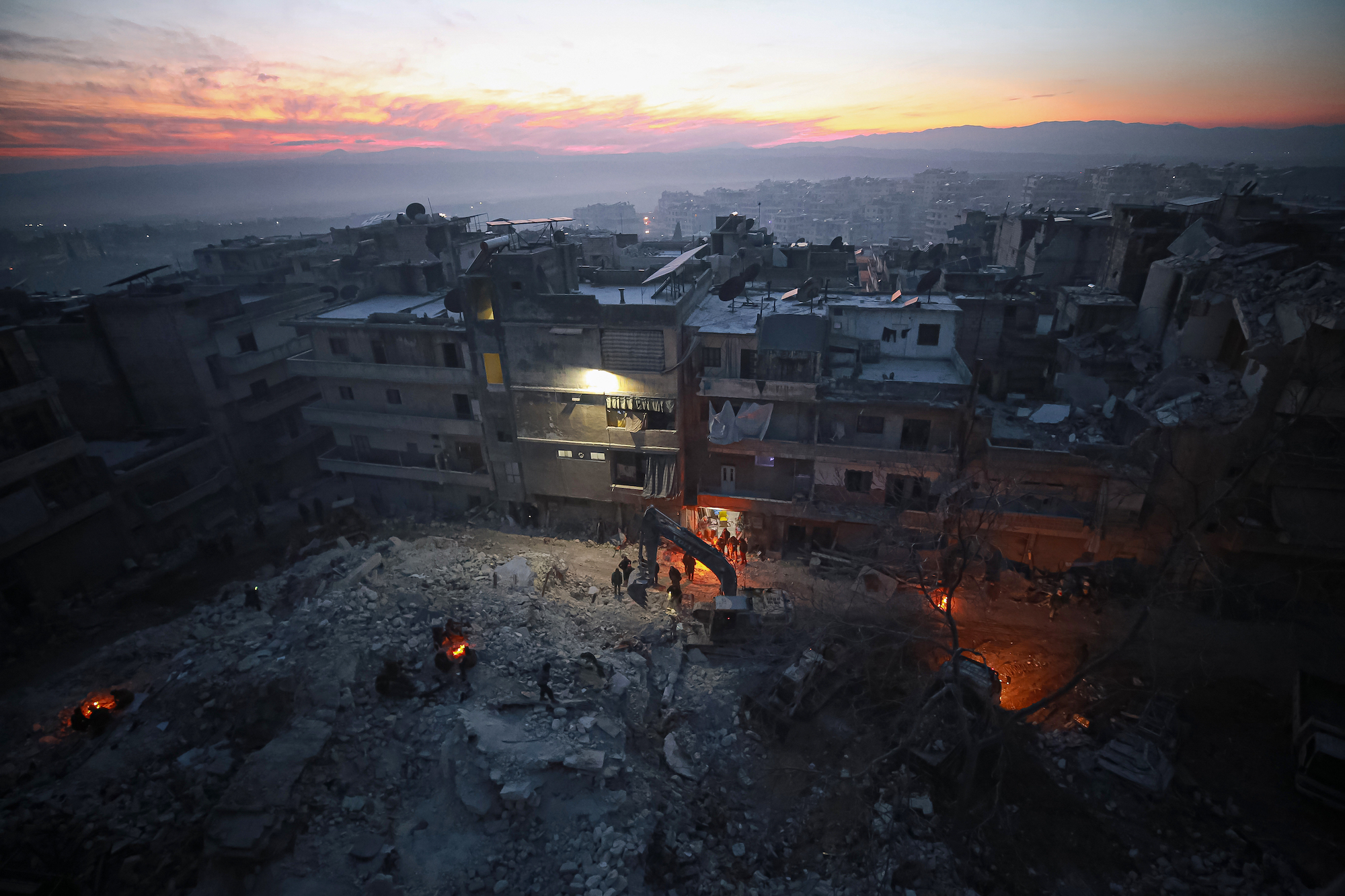More than 21,000 people have died in Turkey and Syria after a magnitude 7.8 earthquake struck on Monday, and rescue workers are now racing against time to pull survivors from the rubble of collapsed buildings in freezing winter conditions.
But years of conflict and an acute humanitarian crisis mean there are extra difficulties in helping survivors in Syria, where international aid has been slow to arrive.
The situation in Syria is starkly different to Turkey, where dozens of countries and international organizations have offered teams of rescuers, donations and aid.
Long wait for aid: It took until Thursday for the first United Nations aid convoy to cross from Turkey into northwestern Syria.
The United Nations Office for the Coordination of Humanitarian Affairs said Thursday’s convoy, made up of six trucks carrying shelter items and Non Food Items, crossed through the Bab al-Hawa crossing – the only humanitarian aid corridor between Turkey and Syria.
Civil war disrupts aid efforts: The delivery of urgent supplies to quake-hit areas of northern Syria has been complicated by a long-running civil war between opposition forces and the Syrian government, led by President Bashar al-Assad, who is accused of killing his own people.
Syrian Foreign Minister Faisal Mekdad says any aid it receives must go through the capital Damascus. “The Syrian state is ready to allow aid to enter into all regions, provided that it does not reach terrorist armed groups,” he said.
That leaves rebel-held areas reliant on aid groups including the UN.
Millions living in the rebel-held areas of northern Syria were already suffering from the effects of extreme poverty and a cholera outbreak when the quake hit. Now many are fending for themselves.
The number of people who were in need of humanitarian assistance before the earthquake stood at 15.3 million – but that number will now have to be revised, UN Resident Coordinator for Syria, El-Mostafa Benlamlih said.
In Aleppo alone 100,000 people are believed to be homeless, with 30,000 of that number currently sheltered in schools and mosques.
“Those are the lucky ones,” Benlamlih said.
The remaining 70,000 “have snow, they have cold and they are living in a terrible situation,” he added.
Freezing temperatures: The scale of the challenge is amplified by the fact that affected areas in both Turkey and Syria are facing colder than normal temperatures. For example, the Syrian city of Aleppo is forecast to have lows of -3°C to -2°C (27°F to 28°F) through this weekend, whereas February low are normally 2.5°C (36°F).









